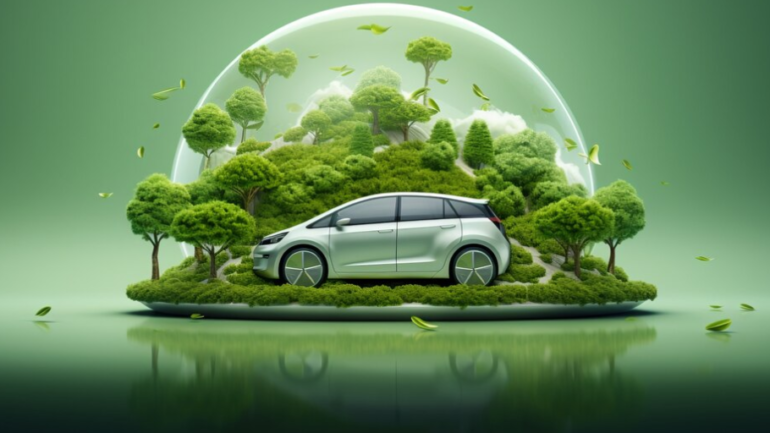Quality Concerns – Chinese EV

There is a long history of stigma being attached to anything made in China, but Chinese electric vehicle manufacturers are now working hard to overcome such negative perceptions and establish themselves as reliable players in the world market– and India may stand to benefit
As Chinese electric vehicle (EV) manufacturers expand their reach beyond China’s borders, the world is taking note of their potential to dominate the global EV market. However, there is a long history of stigma being attached to anything made in China – and the Chinese players are acutely aware of it. They recognise that proactively addressing the negative perceptions about quality is essential for a successful global campaign. Through a combination of quality improvement programs, collaborations, certifications, safety enhancements, customer-centric approaches, and effective branding, they are now working hard to overcome such longstanding notions and establish themselves as reliable players in the world market.
Collaboration with established brands
One dominant approach that Chinese EV manufacturers are taking in this respect is to form partnerships or collaborations with established international automotive brands. Such partnerships provide access to the partner’s expertise in quality control and manufacturing processes, helping Chinese manufacturers enhance their own quality standards. Piggybacking on the reputation and experience of established brands can thus help improve consumer perception of their products.
There have been several strategic partnerships between Chinese EV manufacturers and global companies. These partnerships attempt to leverage each other’s strengths in areas such as autonomous driving technology, AI integration, and international market expansion. The aim is to enhance competitiveness and drive innovation by joining forces.
Here are a few notable examples:
- NIO and Mobileye (Intel): NIO, a prominent Chinese EV manufacturer, partnered with Mobileye, an Intel subsidiary specialising in autonomous driving technology. Mobileye provided its expertise in advanced driver-assistance systems (ADAS) and self-driving technology, while NIO contributed its EV platform and vehicle manufacturing capabilities.
- BYD and Daimler: One of the leading Chinese EV manufacturers, BYD formed a partnership with Daimler, the German automotive company. Together, they launched the Denza brand, which produced electric cars tailored to meet the specific consumer needs and preferences.
- XPeng and NVIDIA: Chinese EV startupXPeng Motors partnered with NVIDIA, a leading provider of artificial intelligence (AI) computing platforms. The collaboration aimed to integrate NVIDIA’s AI technology into XPeng’s electric vehicles, enabling advanced functionalities such as autonomous driving and intelligent cockpit systems.
- Geely and Volvo: Geely, a Chinese automotive company, acquired Volvo Cars from Ford in 2010 to gain access to Volvo’s advanced automotive technology and expertise in safety systems, engineering, and design. They continue to collaborate on various areas, including the development of electric and hybrid vehicles.
Other strategies and initiatives
Apart from collaborations, let’s discuss some other dominant strategies being undertaken by Chinese EV manufacturers to address negative perceptions:
- Quality Improvement Programs: Chinese EV companies are investing significant resources in improving the overall quality. They are implementing rigorous measures to ensure international standards. This includes enhancing manufacturing processes, implementing comprehensive testing procedures, and adopting advanced quality management systems.
- Independent Quality Certifications: Chinese manufacturers are actively seeking independent quality certifications such as ISO 9001 (Quality Management System) and ISO 14001 (Environmental Management System). These certifications validate the adherence to international quality standards and instil confidence in customers.
- Enhanced Safety Features: Safety is a crucial aspect of vehicle quality that can address consumer concerns and build trust. Chinese EV manufacturers are investing in active and passive safety systems, including advanced driver-assistance systems (ADAS), collision avoidance technologies, and robust structural designs.
- Warranty and After-Sales Service: Chinese makers are now offering competitive warranty packages and comprehensive after-sales services. They are extending warranty periods, providing responsive customer support, and establishing service networks to ensure that customers have a positive ownership experience.
- Customer Feedback and Continuous Improvement: In stark contrast to past practices,Chinese EV-makers are increasingly inviting customer feedback and incorporating it into their product development processes. They are conducting market research, soliciting customer opinions, and implementing improvements based on feedback received.
The Indian scenario
India, a prominent player in the global automotive market, trails behind China and the US in the EV category. Nevertheless, the disparity between India’s conventional automobile sector and the EV market presents a remarkable opportunity for growth. India’s burgeoning middle class and current governmental policies seem alluring to foreign EV manufacturers. Reducing GST on EVs from 18% to 5%, tax breaks, road tax exemptions, and initiatives like “Make in India” further cement India’s position as an enticing destination for EV manufacturing. Numerous foreign automakers are capitalising on these policies and the surging consumer demand.
India’s policyboost for e-vehicle manufacturing, and the willingness of the private sector to jump in the fray, will most likely result in a heightened reliance on auto component imports from China. As a result, Chinese EV manufacturers are poised to dominate the Indian EV market in the near future. Chinese players have already established a presence in India through joint ventures and partnerships with Indian firms. Experts predict that the Indian EV market will experience a staggering annual growth rate of 65.44% between 2023 and 2032, driven by robust demand and supportive government policies. Both domestic and foreign automakers are eager to harness this potential.
Stiff competition often spurs innovation, technological advancements, and innovations – eventually benefitting both consumers and the industry. Indian manufacturers can adopt best practices from their foreign counterparts –including the Chinese – to bolster their own capabilities, potentially reshaping the entire Indian EV industry.


